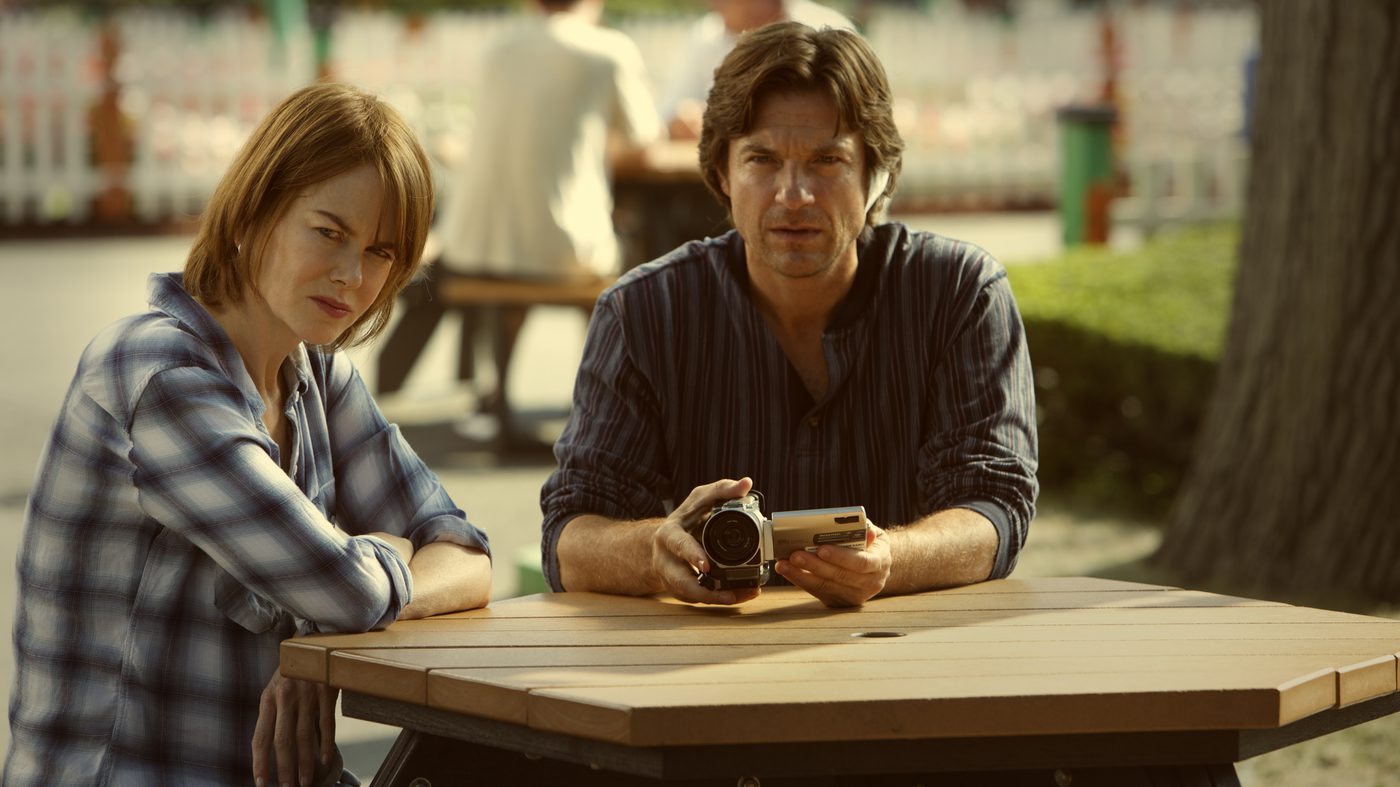It’s been a swift twelve years since Little Miss Sunshine charmed the world with its centerpiece family of misfits and misanthropes. Since their road trip has ended, the dysfunctional family has been a centerpiece of the independent film world. With his second directorial effort, Jason Bateman introduces one of the wackier families to grace the screen in the adaptation of the best-selling novel, The Family Fang.
The titular Family Fang are an oddball unit of performance artists, including parents Caleb (Christopher Walken) and Camille Fang (Maryann Plunkett). Their two children, Annie (Nicole Kidman) and Baxter (Jason Bateman) are the centerpieces of their parents’ real-world-set performances on unsuspecting public crowds unaware of their artistic intentions. For example, the opening scene (seen in flashback) features their young son holding up a bank teller with a real gun until she hands over the lollipops she keeps at her desk. Then Caleb Fang, dressed as a cop, runs over to tackle his son “the robber”, only to have him “shoot” a nearby woman (aka Camille Fang). It’s all quite bizarre, but it’s part of a greater ruse for the Fang’s art; something Caleb Fang is consistently, if not annoyingly, reminding us.
Flash forward thirty years – Annie (Nicole Kidman) is a successful, if not troubled, actress in Los Angeles and Baxter (Jason Bateman) is a likewise successful, if not troubled, writer. After getting shot with a potato gun while writing an article on the subculture, all four Fang’s reunite at their family home in upstate New York. Soon after Caleb and Camille go ‘missing’ in a bloody roadside crime, Annie and Baxter believe that this is the Fang’s final performance, and they go out in search of their missing parents.
The Family Fang is a wildly original tale. Its density is rather remarkable for what, on the surface, looks like a standard indie dysfunctional family comedy. It is a wonderful look at the definition of art and what it can be, as well as the process of creating it. The film is able to bring more of these ideas across through it’s clever, if not necessary, use of flashback and deftly-woven faux-documentary footage that makes the Fang’s bizarre, artistic nature tangible. The heart of the film lies in its exploration of authenticity, which, as mentioned, can be a little ham-fisted at times, however, there are some revelatory ideas that spring from Annie and Baxter’s pursuit of the truth about their parents. In the end, however, the plot and its weighty ideas get very muddy, leaving the climax to be rather dissatisfying.
What could be most impressive is Jason Bateman’s direction. After his bonkers debut feature, Bad Words, Bateman explores the same themes of struggling to shake an unorthodox childhood. While no masterpiece, The Family Fang cements his talent behind the camera. His keen comedic sensibility is smooth with emotional gravitas. As Baxter, he is also endearing, playing his usual middle-aged downbeat character, but this time with remarkable honesty. He also rounds up a collective of wonderful performances from always great performers Kidman, Walken, and Plunkett for an authentic family unit.
And see, The Family Fang could have drifted down the path of eccentricity for eccentricity’s sake, but there is a weight to that theme of authenticity. The Family Fang finds something true, new and real from the dysfunction that is seen all too often.
The Family Fang is rated R for some language. In theaters (Laemmle Theaters in Santa Monica, Pasadena, North Hollywood and Sundance Sunset Cinemas) today.
Jasper Bernbaum
Jasper is a contributing writer for Cinemacy. He combines his love of music with his visual eye into a passion for live photography. He holds a BFA in Film Production from Chapman University and is an avid filmmaker, watcher, and all around cultural adventurer.

